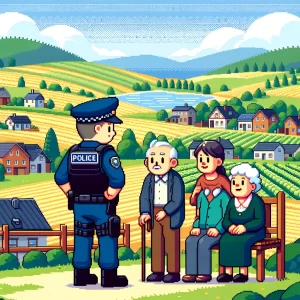
What Happens When Psychopaths Face a Pandemic?
What do your personality traits say about your pandemic behavior? A new study suggests… quite a lot, especially if you’re prone to manipulation, self-importance, or thrill-seeking.
In one of the most psychologically revealing studies of the pandemic, researchers used data from over 2,000 people in the UK and Germany to explore how “Dark Triad” personality traits—Machiavellianism, narcissism, and psychopathy—predicted COVID-19 vaccination and prevention behaviors.
The results? Eye-opening—and a wake-up call for future public health campaigns.
Vaccines, Vanity, and Villainy: Meet the Dark Triad
Let’s break this down. The Dark Triad refers to three specific personality traits:
- Machiavellianism: Strategic, manipulative, and calculating.
- Narcissism: Grandiose, self-focused, and status-obsessed.
- Psychopathy: Impulsive, antisocial, and thrill-seeking.
These aren’t clinical diagnoses, but personality patterns that exist along a spectrum—and influence how we think, feel, and behave, especially under stress.
During the COVID-19 pandemic, these traits subtly shaped how people responded to prevention efforts—like getting vaccinated, using hand sanitizer, or keeping their distance.
Who Didn’t Get the Shot—And Why
The study, published in BMC Public Health, analyzed self-reported behavior from the European Covid Survey (ECOS) between December 2021 and January 2022. This was a critical time: boosters were widely available, but uptake lagged. Here’s what they found:
- People scoring high in psychopathy were 3.3% less likely to have received even a primary vaccination.
- Narcissists were 4.5% more likely to skip a booster—despite already getting the initial shots.
- Odd twist? Narcissists also reported greater adherence to simple prevention measures like distancing or hand-washing. (We’ll get to why that might be.)
The Psychology of Prevention
Let’s be real: vaccines aren’t just a medical choice—they’re a social contract. You take a small risk today (side effects, sore arms) for the greater good. But what if your personality doesn’t value the “greater good”?
- Psychopathic traits, like impulsiveness and lack of empathy, make prevention efforts feel optional—or irrelevant.
- Narcissistic individuals might see boosters as beneath them, especially once the media hype wears off. No status? No shot.
- Machiavellians, surprisingly, didn’t significantly differ in vaccine uptake, possibly because they’re pragmatic. If they see a benefit, they’ll play along.
But here’s the kicker: narcissists may over-report their safety behaviors. Why? Because it boosts their self-image. Being seen as “cautious” can feel like winning social points.
A Public Health Messaging Makeover
So what do we do with this information? According to the authors, it’s time to tailor health communication not just by demographics—but by psychographics.
Here are a few personality-savvy strategies:
- 🎯 For narcissists: Frame booster shots as elite, cutting-edge, or socially admired. Think: “Be the protector your community looks up to.”
- 🎰 For psychopathic tendencies: Offer convenience and novelty. Pop-up vaccine booths at exciting venues—gyms, sports bars, festivals—could work better than moral appeals.
- 🧠 For Machiavellians: Focus on logical benefits—personal productivity, travel, or freedom—rather than collective morality.
Why This Matters for the Next Pandemic
This isn’t about labeling people. It’s about understanding what drives behavior—and designing smarter interventions.
During a crisis, blanket messaging doesn’t reach everyone equally. This study suggests that personality-targeted health campaigns might be more effective, especially when it comes to those who are hardest to reach.
And let’s not forget the ripple effect. Even small shifts in vaccine uptake or safety behavior—especially among those least likely to comply—can change the course of an outbreak.
What’s Next?
More research is needed, especially in non-Western countries and younger populations. But the takeaway is clear: psychology isn’t a “soft” science in a pandemic. It’s a core lever of public health.
Future campaigns should borrow lessons from marketing and behavioral economics—crafting messages that resonate emotionally, not just rationally.
Join the Conversation:
- Do you think personality-based messaging is ethical—or manipulative?
- How could these insights be used in your community’s vaccination efforts?
- What messages would you find most persuasive if trust was low?
Let’s keep the dialogue going. Because science doesn’t just tell us what to do—it helps us understand why we do it.
Be the Difference – Subscribe Today!
Don’t get left behind—stay ahead of the latest public health breakthroughs and challenges. Subscribe now for free weekly updates that empower you to take meaningful action.
🔗 Momentum starts with you! Share this blog and help others stay informed.


